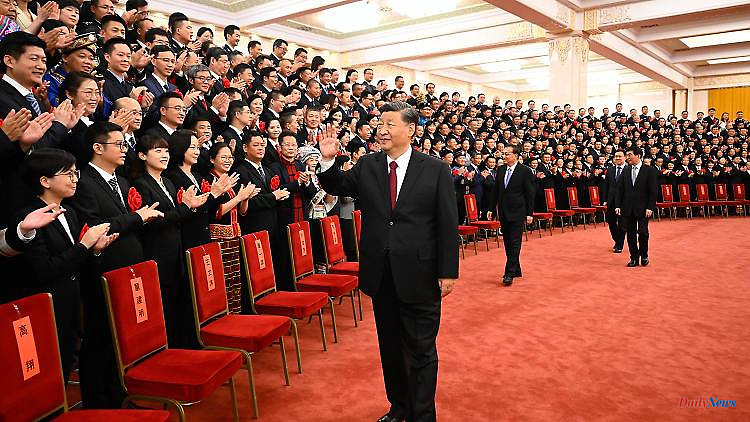Germany imports more products from no country in the world than from China. And: More and more German research centers are giving Beijing access to our technologies. That's what the first episode of the new ntv podcast "Wirtschaft Welt
Full speed ahead, that's how you could sum up Chinese President Xi Jinping's plans. When the 100th anniversary of the People's Republic is celebrated in 2049, his country should have the leading role worldwide. China then wants to determine world events politically, militarily and also economically. A goal that the German economy should not underestimate. Because China is Germany's most important trading partner and German companies are closely linked to China.
Germany imports more goods from no other country. German car manufacturers such as VW, BMW and Daimler now produce more cars in China than in their own country. And without solar cells from China, the energy transition in Germany would hardly be conceivable. In the ntv podcast "Economy World
Europeans are welcome as long as they bring manufacturing capacity and technology that China doesn't have enough of. Bütikofer fears that if this relationship shifts in favor of the Chinese, the European trading partners will become superfluous. China itself, for example, makes sure that foreign companies reinvest the profits they made in the country in the country itself. And German research funds - or the relocation of entire research areas, as with the Ludwigshafen chemical group BASF - are welcome.
Is that still a win-win situation for both sides or have German companies long been too short-sighted? Bütikofer discusses this in the podcast with China expert Frank Sieren.
Sieren, who has lived in Beijing for 28 years and has written several bestsellers, primarily asks whether we can afford more independence from China. "If we manufacture more products in Germany again, then everything would suddenly and very quickly become much more expensive," warns the China expert. Should German companies completely stop doing business with the People's Republic, Germany would soon have to reckon with significantly higher inflation rates. According to Sieren, independence has its price. And he doubts that politics and the people in Germany want to pay this price.
Especially in times of the Ukraine war, in which the world is strategically repositioning itself, it makes sense for Sieren to enter into dialogue with China. Because a new world order, that much is certain, will not only be negotiated in the West. If Germany wants to help determine the new rules of the game and give weight to Western values, a position of strength is a great advantage.
European politician Bütikofer has long since found clear words: He has not only repeatedly spoken out in favor of clearer economic rules between Europe and China, but also criticized human rights violations in connection with the Uyghurs. The Chinese government responded with its very own definition of strength: Bütikofer has been on the sanctions list for over a year and will probably not set foot on Chinese soil any time soon.












